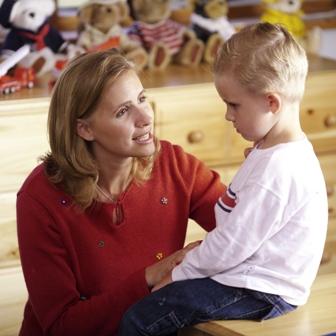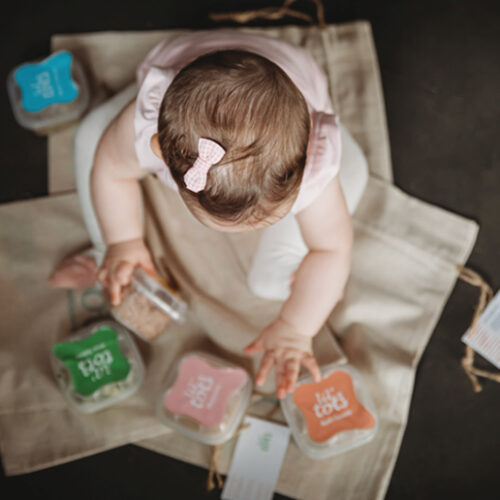Supporting a child during bereavement
Whether your child has lost a family member, someone they know or a beloved pet, it can be a tricky balance to support children at this time. Here are some pointers to help navigate this sad eventuality.

As a six year old, my niece Gina experienced the loss of her grand aunt Chrissy and her pet goldfish in the same year. Chrissy was a much loved 88 year-old and, since they were babies, she had always delighted in spending time with all the kids in her extended family.
Gina’s goldfish Bobby on the other hand had been with her for less than two months as her first and much longed-for pet. Interestingly, and in a way that is completely normal for a young child, Gina displayed much more overt grief and sadness at the loss of Bobby the fish than losing everyone’s favourite grand aunt.
Adults are understandably hit hard and overwhelmed with their own grief when losing someone close to them. Children can also be impacted by the same loss in a big way, but this will often manifest in a completely different way to adults. As a parent, here are some key points to remember about how children deal with a bereavement:
- Children and teenagers grieve just as much as adults but may show it in different ways.
- Children have less ability to put into words how they are feeling.
- Children sometimes may not seem to be directly affected by a death, but you can often see their distress in their behaviour rather than in what they are able to say.
This is a time for lots of hugs and also clear explanations of why their loved one died, in a way that is appropriate for your child’s age.
SUPPORTING GRIEVING CHILDREN
Hold and comfort
Hold and comfort your child. Keep them close to you and make sure your child’s usual caregivers give them plenty of gentle attention.
Be honest
Be honest about what has happened. Talk to your child in a way that is right for their age. This will help your child make sense of things and help to reduce any anxiety and confusion.
Be patient
Sometimes children temporarily show behaviour usually associated with an earlier stage of development. This is called regressive behaviour. They may start wetting the bed again, or talking with a ‘baby’ voice. Be patient. Patience and understanding will support your child to get their confidence back in their own time.
Discuss and communicate
Discussion and communication will help your child understand and process the bereavement. Follow your child’s lead and answer questions honestly. Ask your child what they are thinking and feeling.
Talk about feelings
Talk about feelings and help your child to identify what they are feeling. Your child may be experiencing strong feelings of sadness, anxiety and anger over their loss. Help them to make sense of these feelings by putting words to them.
Spend quality time
Your calming presence can be deeply reassuring, so spend quality time together – whether this is playing, going for a walk, making a cake or preparing a meal together, or going on a mission to your nearest recycling facility and grabbing a cold drink on the way back.
Ask open ended questions
Rather than asking ‘are you okay?’ (which means they can only give a yes or no answer) ask open ended questions that draw out their thoughts and feelings. For example, ‘What are you thinking about at the moment?’
Keep routines going
Keep to routines as much as possible. Routines will help your child feel secure and reassured that their world continues to make sense. Understand that grief feelings depend on the relationship with the person who has died. It’s important to understand that the stronger the relationship is with the loved one, the more intense the grief feelings may be in times of loss.
Stay calm and show warmth
If possible, when a child ‘acts out’, remember that they may be overwhelmed by feelings. Stay calm and respond to your child with warmth and empathy.
Acknowledge your child’s feelings
If your child becomes overwhelmed with their feelings, it’s helpful to acknowledge the way they are feeling. Distraction can also help – ‘let’s go for a walk’ or ‘let’s play a game’.
Remember that how we grieve is unique
Grief is sometimes described as an emotional fingerprint – it is unique to each of us. There is no normal way to grieve. It is a turbulent time that can affect us physically, emotionally, mentally and spiritually. The main thing to remember when supporting children and teenagers with their grief is to reassure them you are there to look after them and to help keep them safe.
Reassure
Some ways to reassure your child: listening, inviting rituals into the family as you mourn, offering choices around grieving, and creating outlets where feelings can be expressed, such as creative writing, art, sport, dance and play.
Also, sharing your own grief can help children understand they are not alone. They may be reassured about their own big feelings. You will also be modelling healthy expression. But, if you are feeling particularly emotional, it may be wise to have some time away from your child. That way, they don’t become afraid by the intensity of your loss.












Comments